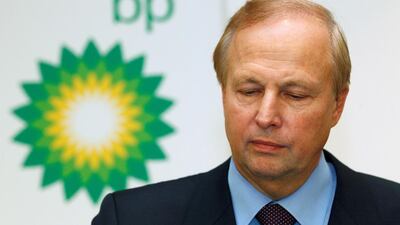BP says gas demand over the next two decades could be slowed if government policies become more lax towards climate change and favour coal.
In its influential annual Energy Outlook, the London-based oil major said that its “base case” forecast, which sees natural gas demand growing at twice the rate of coal or oil demand, assumes that growth of carbon emissions slows but “still falls well short of the significant falls in carbon emissions likely to be required to meet the goals set out at the [climate change conference] meeting in Paris” at the end of 2015.
More than 170 countries signed up to that deal to limit carbon emissions, particularly the US and China, which are by far the largest two emitters.
Though BP does not address it in the outlook, that deal is under threat as US president Donald Trump has vowed to “cancel” it, which could undermine the commitment of China and other countries.
The BP outlook laid out a familiar picture, with emerging economies – especially China and India – lifting billions out of poverty over the next two decades and increasing demand for energy across the board, skewed towards Asia rather than the developed countries, where efficiencies and the “mobility revolution” of more electric cars and such is stagnating demand.
“Natural gas is expected to grow faster than oil or coal, helped by the rapid growth of liquefied natural gas increasing the accessibility of gas across the globe,” said Bob Dudley, BP’s chief executive, in the introduction to the new outlook.
In its “base case”, BP forecasts natural gas demand growth at 1.6 per cent a year over the 2015-2035 period, while coal demand growth slows sharply, from a rate of 2.7 per cent a year over the previous two decades to 0.2 per cent a year through 2035.
However, “the strength of natural gas demand [is] helped by government policies encouraging a shift away from coal and supporting growth in gas”, the report said. “It is also possible that the growth of natural gas may be threatened if there is less government support encouraging a switch from coal into gas.”
In that slower case, gas demand growth is one third slower, at 1.1 per cent a year, thus eating into coal’s share at a much slower rate.
The demand outlook for natural gas has huge implications for the Middle East, which BP sees as the second most important supplier of growing demand after the US shale sector.
On the oil front, BP says the pace of demand will depend on the pace and nature of the “mobility revolution”. Here again BP sees many risks to the current trend, such as how quickly electric cars penetrate the market.
An “abundance of oil resources combined with the prospect of slowing oil demand may prompt a change in global oil supplies, [such that] low-cost producers may use their competitive advantage to increase market share”.
This means Middle East Opec, Russia and US increasing their combined share from 56 per cent to 63 per cent of the world oil market over the period.
amcauley@thenational.ae
Follow The National's Business section on Twitter

